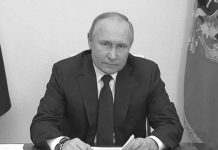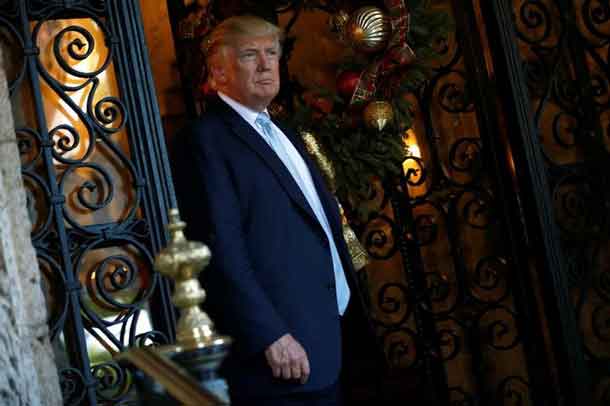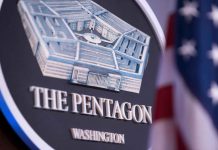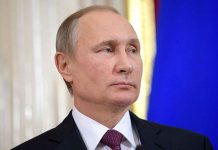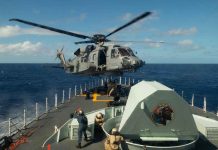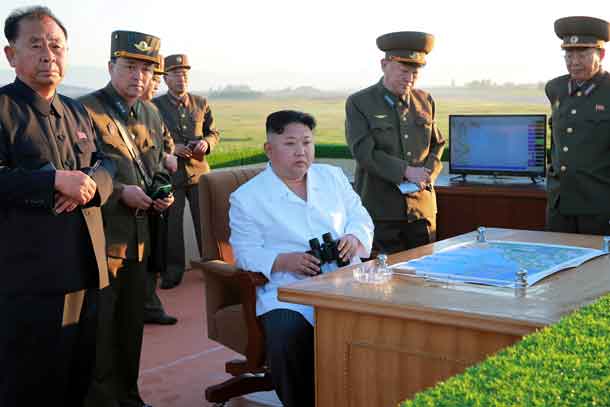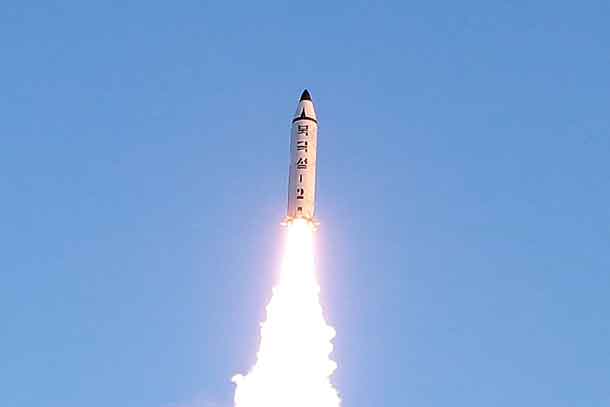

WASHINGTON — The Defense Department detected and tracked a single North Korea missile launch today at about 1:17 p.m. EST, Pentagon spokesman Army Col. Robert Manning said in a statement today.
The initial assessment indicates that this missile was an intercontinental ballistic missile, he said. This is North Korea’s third ICBM test this year, following two in July, and the first missile launch of any kind since Sept. 15, when they tested an intermediate range missile.
The ICBM was launched from Sain Ni, North Korea, north of Pyongyang, and traveled east about 1,000 kilometers — about 620 miles — before splashing down in the Sea of Japan, within Japan’s Exclusive Economic Zone, an area that extends 200 nautical miles from its coast. “We are working with our interagency partners on a more detailed assessment of the launch,” Manning said.
United States President Trump tweeted, “After North Korea missile launch, it’s more important than ever to fund our gov’t & military! Dems shouldn’t hold troop funding hostage for amnesty & illegal immigration. I ran on stopping illegal immigration and won big. They can’t now threaten a shutdown to get their demands.”
The government of the Democratic People’s Republic of Korea announced the following statement Wednesday over the successful test-fire of new-type ICBM: “The test-fire of intercontinental ballistic rocket Hwasong-15, newly developed under the political resolution and strategic decision of the Workers’ Party of Korea, was successfully carried out.
“The ICBM Hwasong-15 type weaponry system is an intercontinental ballistic rocket tipped with super-large heavy warhead which is capable of striking the whole mainland of the U.S. This system has much greater advantages in its tactical and technological specifications and technical characteristics than Hwasong-14 whose test-fire was conducted in July last, and it is the most powerful ICBM which meets the goal of the completion of the rocket weaponry system development set by the DPRK.
“Upon authorization of the WPK and the government of the DPRK, ICBM Hwasong-15 was launched at 02:48 on Nov. 29, Juche 106 (2017) in the suburbs of Pyongyang under the guidance of Comrade Kim Jong Un.
“After making a 53-minute flight along its preset orbit, the rocket accurately landed in the target waters set in the open sea in the East Sea of Korea.
“The test-fire was conducted in the highest angle launch system and it had no adverse effect on the security of neighboring countries.
“The rocket soared to the highest altitude of 4 475 km and then flew the distance of 950 km.
“After watching the successful launch of the new type ICBM Hwasong-15, Kim Jong Un declared with pride that now we have finally realized the great historic cause of completing the state nuclear force, the cause of building a rocket power.
“The great success in the test-fire of ICBM Hwasong-15 is a priceless victory won by the great and heroic people of the DPRK who have upheld the WPK’s line on the simultaneous development of the two fronts with loyalty without the slightest vacillation despite the vicious challenges by the U.S. imperialists and their followers and manifold difficulties.
“The development and advancement of the strategic weapon of the DPRK are to defend the sovereignty and territorial integrity of the country from the U.S. imperialists’ nuclear blackmail policy and nuclear threat, and to ensure the peaceful life of the people, and therefore, they would not pose any threat to any country and region as long as the interests of the DPRK are not infringed upon. This is our solemn declaration.
“As a responsible nuclear power and a peace-loving state, the DPRK will make every possible effort to serve the noble purpose of defending peace and stability of the world.”
The North American Aerospace Defense Command determined the missile launch from North Korea did not pose a threat to North America or U.S. territories and allies, the colonel said.
South Korea’s news agency reported that its army staged its own “precision strike” missile exercise in response.
The United States’ commitment to the defense of its allies, including South Korea and Japan, in the face of these threats, remains ironclad, Manning said. “We remain prepared to defend ourselves and our allies from any attack or provocation,” he said.

